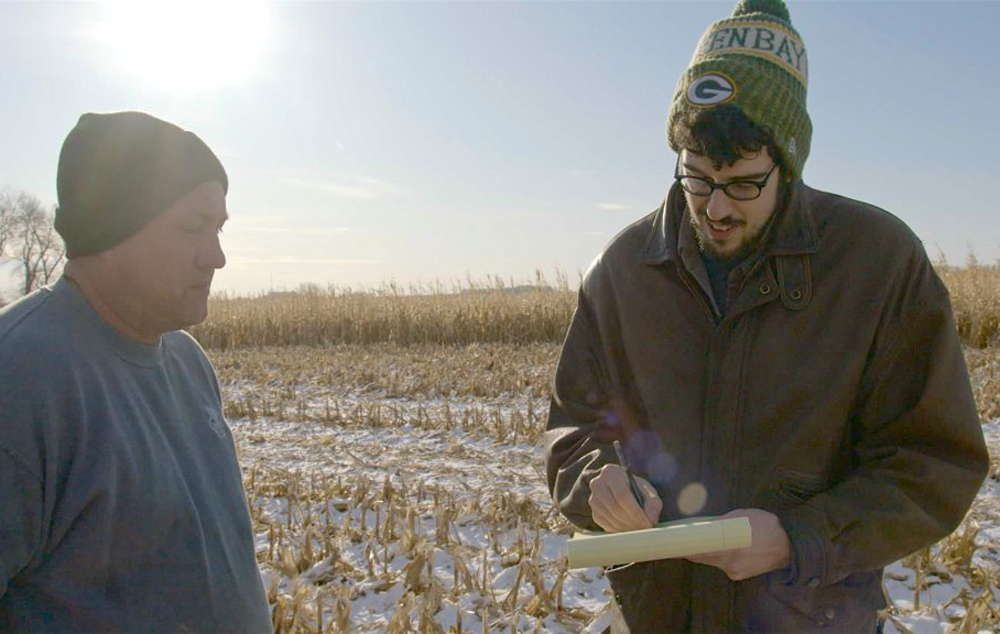It’s noted in “Storm Lake” that when presidential hopefuls from the Democratic Party began flooding into Iowa in 2019 with the hopes of gaining some early momentum with a win at the state caucus, they were eager to take questions from Storm Lake Times Editor-in-Chief Art Cullen at a public forum, knowing that if they were seen with him, it’d be a mark of credibility. His paper with a circulation of 3000 readers twice a week may not have tremendous reach, but it has considerable influence and trust as the place where anyone in Buena Vista County who wants to know what’s going on in town know exactly where to look.
Co-directors Jerry Risius and Beth Levison had to know they were going to film at a fortuitous time for the newspaper, which has a national spotlight thrust upon it every four years when Iowa comes early in the election cycle, but the Storm Lake Times is intriguing for other reasons, quite possibly being the only paper that could lose advertisers upon winning a Pulitzer Prize, with Cullen’s op-eds decrying the increased corporatization of the agriculture industry earning the distinction in 2017 and the ire of some in the largely red community. As Risius and Levison find when they poll locals, the editorial page can be ignored at the very back of the paper, but the reporting in front isn’t, with the paper founded by Cullen’s brother John still rolling in its third decade as a mostly family operation as Art’s wife Dolores covers feature stories and edits, his sister-in-law Mary probes the community for recipes to publish, his son Tom reports from the field and Art not only handling the op-eds and publishing duties, but delivering the paper to local convenience stores himself.
Accompanied by their dog Peach who can be seen roaming around the newsroom, the Cullens are easy to fall in love with as subjects, but “Storm Lake” presents them as an ideal that makes their predicament all the more frustrating when they find it increasingly unsustainable to keep the publication going. Interest in the newspaper hasn’t diminished nor has its power as an institution as its place in the election cycle where Pete Buttigieg can be seen making a special stop at their offices shows, but financial support for the Times’ work has when as a community, Storm Lake has seen family farms increasingly come under corporate control and the mom and pop shops on main street, fighting for their lives themselves, taking smaller and smaller ads in the paper, reflecting the town in ways that no one would hope for.
It’s unfortunate for reasons besides the service the Times provides to the community when in fact there’s a story to tell in Storm Lake — not only for its citizens, but the world at large when the information gap between neighbors in Storm Lake, as well as between rural and urban areas, without a dependable central source of information leads to greater polarization. One hopes that “Storm Lake” isn’t eventually a document of what could be lost, but rather as it currently stands, a galvanizing depiction of what is gained from having strong community coverage that happens to double as a lovely portrait of a charming family business.
“Storm Lake” is now screening virtually at Full Frame and will next screen at AFI Docs from June 22-27. A full list of future screenings is here.




